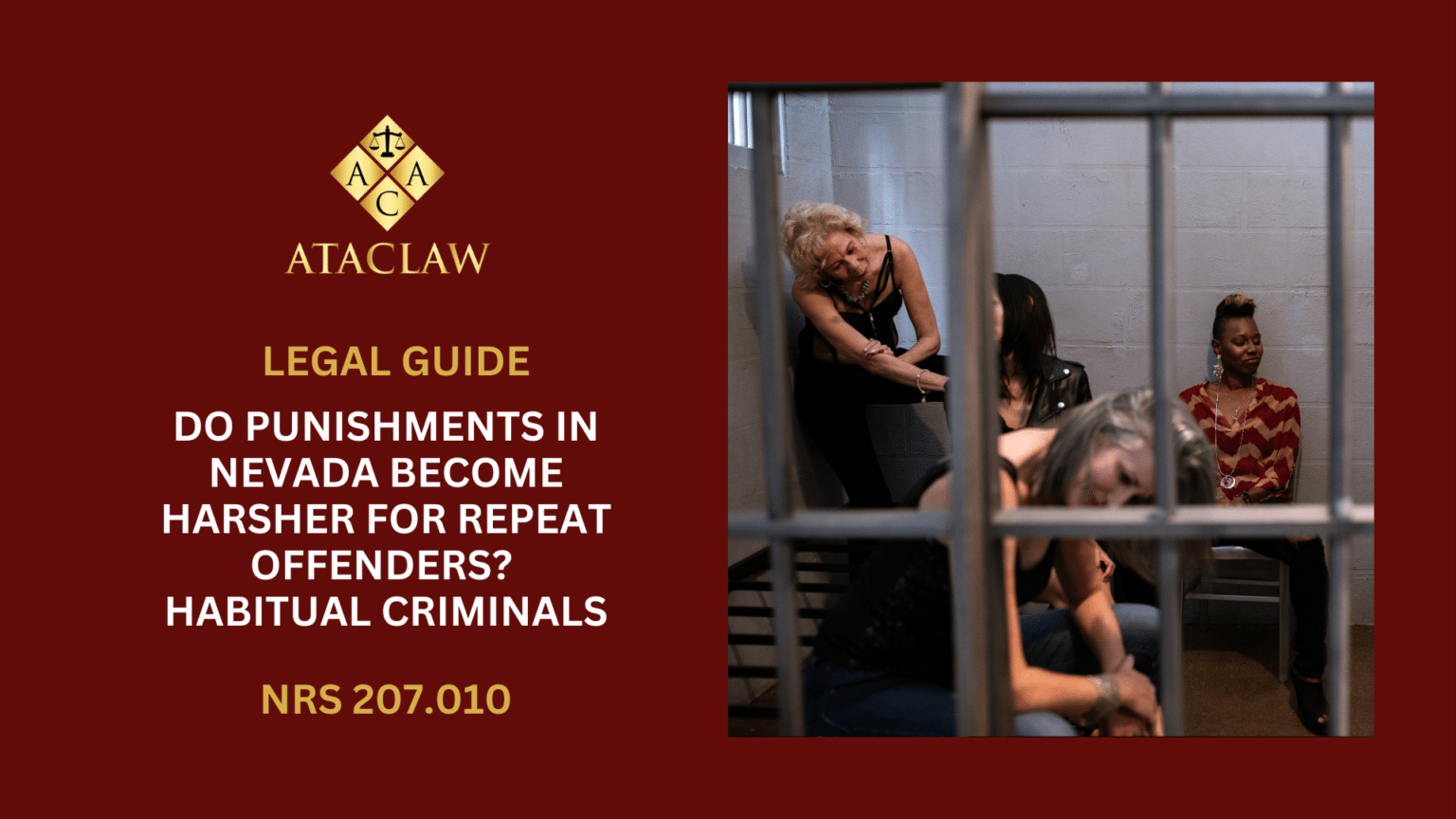In this blog, we’re diving into a serious topic: capital murder in Nevada. If you’ve ever wondered what happens if someone is charged with this crime in the Silver State, you’re in the right place. We’ll break down how Nevada’s laws work, look at different kinds of murder charges, and explain what kind of punishment someone might face. Whether you’re just curious or looking for specific answers, we’ve got the info.
What is Capital Murder in Nevada’s Law?
When someone talks about capital murder in Nevada, they mean a very serious kind of first-degree murder. What makes it “capital” is that it involves extra bad situations—aggravating circumstances—that make the crime even more severe. For example, this could be something like the murder being especially cruel or if it was done for money. Because it’s so serious, this type of crime can lead to the toughest punishment the law can give, even the death penalty. However, it’s crucial to note that the last execution in Nevada occurred in 2006.
Can Any First-Degree Murder Conviction Lead to the Death Penalty in Nevada?
Not every murder conviction in Nevada results in the death penalty. Murder charges in the state are divided into two categories, with second-degree murder being the less severe and not eligible for the death penalty. The more severe, first-degree murder, could result in the death penalty.
First-degree murder encompasses a variety of scenarios:
- Premeditated Murder: This involves cases where the killer planned the murder ahead of time. Examples include situations where the killer waited for the victim, used poison, engaged in torture, or any action that shows a clear intention to kill.
- Felony Murder: This occurs when someone dies as a result of the perpetrator committing a serious crime, even if the death was unintentional.
- Murder to Evade Arrest: This type of murder happens when someone kills to avoid being arrested or taken into police custody.
- School-Related Homicide: Any killing that occurs on school property, during a school activity, or on a school bus, especially if the conduct could endanger others.
- Murder Linked to Terrorism: Killing someone as part of a terrorist act also falls under first-degree murder.
For a murder to potentially result in the death penalty in Nevada, the prosecutor must specifically indicate this intention through a “Notice of Intent to Seek the Death Penalty”. Without this notice, the maximum sentence is life imprisonment.
Importantly, even in cases where the death penalty is on the table, it’s up to the jury to decide whether to actually impose it or to opt for a prison sentence instead.
Does Pleading Guilty to First-Degree Murder Automatically Result in the Death Penalty in Nevada?
Choosing to plead guilty in a first-degree murder case doesn’t directly lead to a death penalty sentence in Nevada. Regardless of how the conviction is reached—whether through a trial verdict or a guilty plea—every defendant faces a sentencing hearing. It’s at this stage that the death penalty or prison time is decided by the jury.
In some instances, defendants might opt for a plea bargain. This means they plead guilty to first-degree murder in return for the prosecutor’s commitment not to pursue the death penalty. Such agreements serve both parties: they spare the defendant from potentially facing death, and the prosecution avoids the uncertainties and resources spent on a trial.
Is Unanimous Jury Decision Required for Death Penalty in Nevada?
Indeed, in Nevada, the decision to apply the death penalty must be unanimous among jurors. If even a single juror votes against it, the defendant cannot be sentenced to death.
What Are the Alternatives if the Death Penalty Isn’t Imposed?
If the jury decides against the death penalty for a defendant convicted of first-degree murder in Nevada, they are then considering other severe sentences. These alternatives include:
- Life imprisonment without the possibility of parole,
- Life imprisonment with eligibility for parole after serving 20 years,
- Or a fixed term of 50 years in prison with the eligibility for parole after 20 years.
Given that first-degree murder is categorized as a category A felony, the most severe class of crime, the sentences reflect its gravity.
Who Is Exempt from Receiving the Death Penalty in Nevada?
In Nevada, certain defendants stand exempt from facing capital punishment, regardless of their conviction for first-degree murder. Specifically, individuals who were under the age of 18 at the time of the crime or those diagnosed as intellectually disabled (formerly referred to as mentally retarded) cannot be sentenced to death. For these groups, known as “death ineligible”, the most severe penalty that can be imposed is life imprisonment without the possibility of parole.
It’s important to highlight that while individuals with intellectual disabilities are protected from the death penalty, those who are mentally ill but not intellectually disabled are not afforded the same exemption. If someone with a mental illness is convicted of capital murder and not deemed not guilty by reason of insanity, they could still face the death penalty. In cases where insanity is successfully proven, the individual is typically committed to a mental health facility rather than being executed or imprisoned.
Another noteworthy point is the procedure following the death of a defendant awaiting trial for capital murder. Should the accused pass away before a conviction is reached, the charges are dismissed, effectively closing the case without any conclusion on the guilt or sentencing of the defendant.
How Does a Jury Decide on the Death Penalty in a Nevada Court?
For a jury in Nevada to reach a decision on imposing the death penalty, the presence of one or more “aggravating circumstances” must be convincingly demonstrated, carrying more weight than any “mitigating circumstances”. This balance of “aggravating” against “mitigating” forms the crux of the decision-making process for the imposition of capital punishment.
“Aggravating circumstances” refer to certain specifics of the case that position the defendant’s crime as particularly heinous or reprehensible. Examples include evidence that the defendant tortured the victim before the murder. Conversely, “mitigating circumstances” are aspects that may lessen the defendant’s culpability. Such mitigating factors might include evidence showing that the defendant had a traumatic childhood or suffered from abuse.
A key factor to consider is that the sentencing hearing that decides on the death penalty somewhat mimics the structure of a mini-trial. Both the prosecution and defense present evidence, put forward arguments, and rebut the other side’s case in order to influence the outcome. The same rigorous examination and validation of information, as in a trial, apply at this stage too.
What Qualifies as an “Aggravating” Factor in Nevada’s First-Degree Murder Cases?
In Nevada, the law designates 14 “aggravating” factors that can elevate the maximum sentence for a first-degree murder from life imprisonment to the death penalty. These factors are specific criteria that, when present, heighten the gravity of the crime. Here is a summary of these aggravating circumstances:
- Status of the Defendant: If the defendant was serving a sentence, on parole, or probation for a felony at the time of the murder.
- Criminal History: Prior convictions for murder or a violent felony, regardless of the jurisdiction.
- Risk to Others: Creating a known risk of death to additional individuals during the murder.
- Felony Murder: Murder committed during the act of another felony such as robbery, arson, burglary, home invasion, or kidnapping, with intent to kill or knowledge of lethal force being used.
- Avoiding Apprehension: The murder was committed to avoid arrest or escape custody, with no requirement for the arrest to be imminent or the victim to be involved in the arrest process.
- Financial Motive: The murder was committed for monetary gain.
- Targeting Peace Officers or Firefighters: The victim was a peace officer or firefighter on duty, which the defendant knew or should have known.
- Torture or Mutilation: The victim was tortured or mutilated by the defendant, with torture defined as inflicting pain for specific purposes beyond killing, and mutilation involving significant alteration or destruction of body parts.
- Multiple Victims: The defendant killed multiple people randomly.
- Victim’s Age: The victim was under fourteen years old.
- Hate Crime: The murder was motivated by hate based on race, religion, nationality, disability, gender identity or expression, or sexual orientation.
- Associated Rape or Attempted Rape: The defendant committed or attempted to commit rape in conjunction with the murder.
- School-Related: The murder occurred on school property or during a school activity, intending to put multiple people at risk.
- Act of Terrorism: The murder constituted an act of terrorism.
Accomplices in the crime can also be eligible for the death penalty, even if they did not personally commit the murder, provided it is shown they were aware lethal force might be used.
Such detailed criteria are part of Nevada’s legal framework to strictly delineate the circumstances under which the most severe punishment may be considered, ensuring that the death penalty is reserved for cases meeting these specified conditions.
What Factors are Considered as Mitigating Circumstances in Nevada’s First-Degree Murder Cases?
Mitigating circumstances are factors that, while they do not excuse or justify a crime, are taken into account for the purpose of reducing the severity of the sentence. In Nevada, during the penalty phase of a first-degree murder trial, the defense can present mitigating circumstances to argue against imposing the death penalty. Common mitigating circumstances include:
- Criminal History: The absence of a criminal record or significant past criminal conduct.
- Disturbance: The murder was committed while the defendant was under considerable mental or emotional distress.
- Duress or Influence: The defendant committed the murder under duress or substantial domination by another person.
- Consent or Participation: The victim consented to or participated in the conduct leading to their death.
- Minor Role: The defendant was an accomplice in the murder but did not play a central or major part in the crime.
- Youth: The defendant was young at the time the murder was committed, which could affect judgment and impulse control.
- Abuse and Poor Childhood: The defendant experienced a significantly abusive or disadvantaged upbringing.
- Positive Contributions: The defendant has contributed positively to society or has good character as attested through community service or other commendable activities.
These mitigating factors are used to humanize the defendant and provide the jury with reasons to consider a lighter sentence, potentially avoiding the death penalty. The defense often presents evidence, including testimony from family and friends, to support these mitigating circumstances, demonstrating aspects of the defendant’s life and character with the aim of eliciting sympathy or understanding from the jury.
Can Death Sentences Be Challenged in Nevada Courts?
Absolutely! Convicts in capital murder cases in Nevada have the right to challenge their death sentences by appealing to the Nevada Supreme Court. If the Nevada Supreme Court is unable to categorically confirm that the death penalty would have remained the sentence even without a false aggravating circumstance, it is compelled to overturn the death sentence and demand a retrial for sentencing.
Is the Jury Ever Bound to Enforce the Death Penalty?
No, the jury is never under any obligation to mandate the death penalty. Even if all jury members concur that the severity of the crime justifies the existence of aggravating circumstances which overshadow any mitigating circumstances, the sentence of death remains an option, not a requirement. The decision to enforce the death penalty is squarely at the discretion of the jury.
Where is Death Row Located in Nevada, and What is the Method of Execution?
Death Row in Nevada is situated at Ely State Prison, which is also the location of the state’s execution chamber. The last execution in Nevada took place in 2006, and to date, a total of seventy-three individuals have been executed in the state.
Since 1985, Nevada has used lethal injection as the sole method of execution. Historically, from 1924 to 1979, executions were conducted in a gas chamber, commencing with Gee Jon and ending with Jesse Bishop. Nevada only once utilized a firing squad for the execution of Andriza Mircovich in 1913. Nevada retains the death penalty and is among the 27 states in the U.S. that still implement this form of punishment.
How Does Manslaughter Differ from Murder in Nevada?
In Nevada, murder and manslaughter are distinguished by the intentions and circumstances surrounding the act:
1. Murder includes first-degree murder, which covers premeditated acts and killings during the commission of a felony, and second-degree murder, characterized as unintentionally causing death through an act of extreme recklessness.
2. Manslaughter is divided into voluntary manslaughter — “heat of passion” crimes such as a spouse killing their partner upon discovery of infidelity — and involuntary manslaughter, which involves unintended fatalities due to negligent actions like mishandling fireworks.
Prosecutors may sometimes charge suspects with both murder and manslaughter for the same incident, a practice known as “open murder.” In such cases, the jury is tasked with determining the appropriate homicide conviction.
What are the Defenses to Capital Murder Charges in Nevada?
Defenses against capital murder charges in Nevada often involve:
- Asserting that the accused did not commit the killing;
- Demonstrating there was no intent to kill and that the incident was an unfortunate accident, or;
- Arguing that the killing was conducted in lawful self-defense due to a reasonable fear for one’s life, or that of another, from serious injury or death.
Evidence typically presented in homicide cases includes forensic reports, surveillance videos, GPS data, and eyewitness testimonies
Whether you are dealing with a capital crime charge, seeking advice on Nevada’s legal system, or simply require the services of experienced litigators, we are here to help. We place a high value on providing knowledgeable, compassionate, and customized legal guidance tailored to your specific context. For further legal assistance and to discuss your case with an expert, don’t hesitate to contact ATAC LAW.




